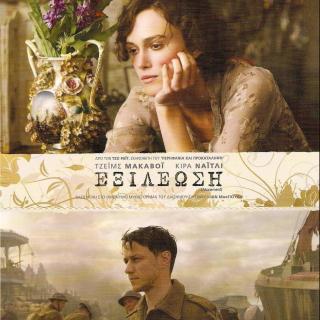
介绍:
In the years to come he would often think back to this time, when he walked along the footpath that made a shortcut through a corner of the oak woods and joined the main drive where it curved toward the lake and the house. He was not late, and yet he found it difficult to slow his pace. Many immediate and other less proximal pleasures mingled in the richness of these minutes: the fading, reddish dusk, the warm, still air saturated with the scents of dried grasses and baked earth, his limbs loosened by the day’s work in the gardens, his skin smooth from his bath, the feel of his shirt and of this, his only suit. The anticipation and dread he felt at seeing her was also a kind of sensual pleasure, and surrounding it, like an embrace, was a general elation—it might hurt, it was horribly inconvenient, no good might come of it, but he had found out for himself what it was to be in love, and it thrilled him. Other tributaries swelled his happiness; he still derived satisfaction from the thought of his first—the best in his year he was told. And now there was confirmation from Jack Tallis of his continuing support. A fresh adventure ahead, not an exile at all, he was suddenly certain. It was right and good that he should study medicine. He could not have explained his optimism—he was happy and therefore bound to succeed.
One word contained everything he felt, and explained why he was to dwell on this moment later. Freedom. In his life as in his limbs. Long ago, before he had even heard of grammar schools, he was entered for an exam that led him to one. Cambridge, much as he enjoyed it, was the choice of his ambitious headmaster. Even his subject was effectively chosen for him by a charismatic teacher. Now, finally, with the exercise of will, his adult life had begun. There was a story he was plotting with himself as the hero, and already its opening had caused a little shock among his friends. Landscape gardening was no more than a bohemian fantasy, as well as a lame ambition—so he had analyzed it with the help of Freud—to replace or surpass his absent father. Schoolmastering—in fifteen years’ time, Head of English, Mr. R. Turner, M.A. Cantab.—was not in the story either, nor was teaching at a university. Despite his first, the study of English literature seemed in retrospect an absorbing parlor game, and reading books and having opinions about them, the desirable adjunct to a civilized existence. But it was not the core, whatever Dr. Leavis said in his lectures. It was not the necessary priesthood, nor the most vital pursuit of an inquiring mind, nor the first and last defense against a barbarian horde, any more than the study of painting or music, history or science. At various talks in his final year Robbie had heard a psychoanalyst, a Communist trade union official and a physicist each declare for his own field as passionately, as convincingly, as Leavis had for his own. Such claims were probably made for medicine, but for Robbie the matter was simpler and more personal: his practical nature and his frustrated scientific aspirations would find an outlet, he would have skills far more elaborate than the ones he had acquired in practical criticism, and above all he would have made his own decision. He would take lodgings in a strange town—and begin.
He had emerged from the trees and reached the point where the path joined the drive. The falling light magnified the dusky expanse of the park, and the soft yellow glow at the windows on the far side of the lake made the house seem almost grand and beautiful. She was in there, perhaps in her bedroom, preparing for dinner—out of view, at the back of the building on the second floor. Facing over the fountain. He pushed away these vivid, daylight thoughts of her, not wanting to arrive feeling deranged. The hard soles of his shoes rapped loudly on the metaled road like a giant clock, and he made himself think about time, about his great hoard, the luxury of an unspent fortune. He had never before felt so self-consciously young, nor experienced such appetite, such impatience for the story to begin. There were men at Cambridge who were mentally agile as teachers, and still played a decent game of tennis, still rowed, who were twenty years older than him. Twenty years at least in which to unfold his story at roughly this level of physical well-being—almost as long as he had already lived. Twenty years would sweep him forward to the futuristic date of 1955. What of importance would he know then that was obscure now? Might there be for him another thirty years beyond that time, to be lived out at some more thoughtful pace?
大家还在听

